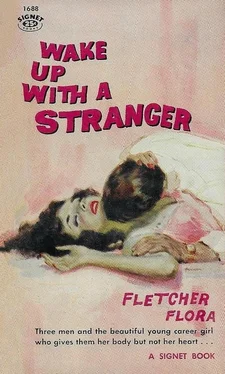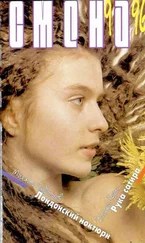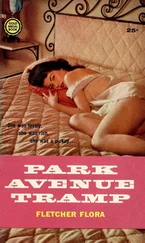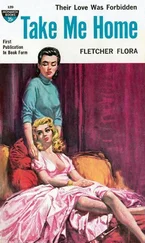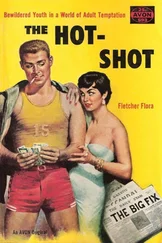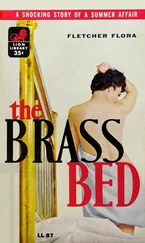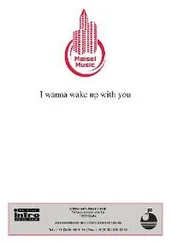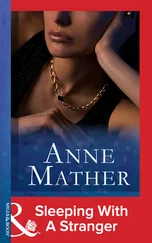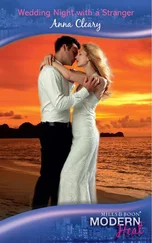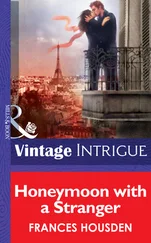Donna looked across the tiny table at the ugly, emaciated woman staring sourly at a Martini as if it were the total distillation of her life in a brittle glass bulb, and she thought that Aaron Burns had surely been in Gussie’s life a late and rather distorted recapitulation of this boy who had insisted on riding a motorcycle until he broke his neck at it. For this reason, because Aaron had turned to her and not to Gussie, Donna felt as if she had cheated and betrayed a friend. She knew that this feeling was ridiculous, but it disturbed her just the same, and she didn’t know what to say.
“What a rotten thing to happen,” she said. “I’m sorry, Gussie.”
“Well, it hardly matters any more, and I only mentioned it because of circumstances. It had very little effect on me, except to make me hate motorcycles and wet holes in the ground and sometimes myself and everything in general, and now I think we’d better talk about what is likely to happen to the shop. Do you think it will open again?”
“I don’t know. Surely it will open, if only until it’s finally disposed of. That will probably be quite a long time off, for there are sure to be a lot of legal things to be settled. I don’t know much about such matters.”
“Neither do I, and I guess there isn’t much use in discussing it at all, so far as that goes. We’re sure to be notified of what is expected of us.”
“For the present, I should think it is in the hands of Aaron’s lawyer, Mr. Joslin. Do you think I should contact him?”
“I doubt it. If he wants to talk with you about anything, he’ll let you know. Do you know him?”
“Not well. I’ve met him a couple of times when I was with Aaron.”
“He’s a nice guy. He was Aaron’s friend, as well as his lawyer, and once I spent a weekend with him at a place that doesn’t matter. I thought it would be pretty dull because he’s so dry and reserved, but on the weekend he was altogether different, quite gay and charming, and I had a very pleasant time.”
Suddenly Gussie picked up her glass and drained it of the second Martini, as if it were something she had decided to get down quickly after considering it all this time. After setting her glass down empty, she stood up.
“I don’t believe I’ll stay and get slightly drunk after all,” she said. “I believe that I’ll go home and get thoroughly drunk instead. Would you care to come along and join me in the project?”
“I don’t think so, Gussie. Thanks, anyhow. I’ll stay and have another Martini, if you don’t mind, and then I may go to the shop and try to work. I guess there would be no objection to my going to the shop now.”
“Why should there be? You still have your key, and no one’s fired you yet. Call me if you learn anything, will you, darling?”
“All right, Gussie. I’ll call.”
Gussie left, and Donna ordered another Martini and drank it slowly. She didn’t actually feel like working, and did not, moreover, want to be alone in the shop where she had been so much. On the other hand, she did not want to go alone to her apartment, which was the only other alternative. So she continued to sit at the tiny table and nurse her drink, and when it was finally gone, she ordered and nursed another. This one, too, was gone after a while, and she was left with the choice of ordering still another or leaving. She would have preferred to stay, but she decided that she had better not. So she got up and went outside on the street and waited for a taxi to come along. While she waited, she still hesitated between the shop and her apartment, but once in a taxi she decided abruptly to go home.
In the apartment, looking at herself in the long mirror of the dressing table, she thought that the dress she was wearing was one that Aaron would have liked. When she had passed by his casket, he had looked remote and unreal and utterly unlike anyone who had ever happened in her life, but now, thinking of him without seeing his gray husk, he was credible again and completely believable. She wondered where he really was, where he had gone off to so precipitately from the hall of his house, or if he had simply ceased to function or to exist in any conscious way. She had a feeling that she could at that moment, by making herself inwardly and outwardly utterly still, establish contact of some kind with him. She tried intensely to accomplish this, standing immobile before the glass that no longer reflected her image in the black dress, but there was only silence and stillness. After a while there was a stir and a sigh, and sound and motion resumed: nothing now was clear that had been obscure, nothing now was known that was not known before. Her mirror image returned, and she considered changing into something else, but at that moment the telephone rang in the living room.
The voice that responded to hers was dry and precise, and careful with syllables.
“Miss Buchanan?”
“Yes.”
“This is Earl Joslin speaking. Mr. Burns’ lawyer. I should like to see you at your earliest convenience.”
“Today?”
“It it’s convenient.”
“What do you want to see me about?”
“I’d prefer to tell you when I see you, if you don’t mind.”
“I see. Do you want me to come to your office?”
“I’m not in my office now and would rather not go there. May I call on you for a few minutes at your apartment?”
“Yes, of course. I’d be pleased to have you.”
“Very well, then. In about an hour, I’d say.”
It had naturally occurred to Donna that Aaron might have left her something in his will, and she supposed that it was about this that Joslin was coming. She did not imagine that the bequest, if there was one, would be large, and she honestly hoped that it wasn’t, not because she was troubled by any sensibility to higher morality, but simply because a large bequest would be embarrassing and would suggest a relationship she would rather not have known. She would not be seriously troubled whether the bequest was large or small, but what did trouble her seriously was the shop and its disposition and the threat to the beautiful beginning she had made there.
She put some recordings on the phonograph, selections from Swan Lake, and again decided against a drink. Earl Joslin would probably accept one when he came, and she would join him. Sitting in the brocaded chair, she listened to the music of Tchaikovsky, and stared at a Van Gogh reproduction on the wall. Responding to the bright sound and color of two tortured minds, she was suddenly reminded of the poet Villon, and of the boy named Enos Simon who had told her about the poet and whom she had neither seen nor thought of for a long, long time. Why, she wondered, did so much beauty come from darkness and despair, and what had ever become of Enos Simon? Tchaikovsky was a dark and distorted man, as were Van Gogh and Villon. Yet the world had received from them a legacy of beauty such as few men leave. Enos Simon would almost certainly not leave from his life a residue of anything, but she wondered where he was and what he was doing and thought for the first time since the fall that he’d left that she would like to see him again.
Having moved backward in her mind, she did not return until the recordings played out and she got up to reverse them. She had no sooner done this than the buzzer sounded, and she opened the door to Earl Joslin, slim and gray and dryly impeccable, who stood waiting at the threshhold. Seeing him there, she recalled immediately Gussie’s reference to a weekend, and she found the idea incredible, something she could not imagine. But Gussie had not dated it, and so perhaps it had happened long ago.
“Good evening,” she said. “Come in, please.”
“Good evening, Miss Buchanan.”
He smiled slightly and stepped past her into the room. The smile had a kind of pale clarity, like winter’s sunlight, somehow oblique and from a source far off. She took his hat and topcoat and carried them into the bedroom and returned to find him standing near the phonograph with his head canted in a posture of listening.
Читать дальше
